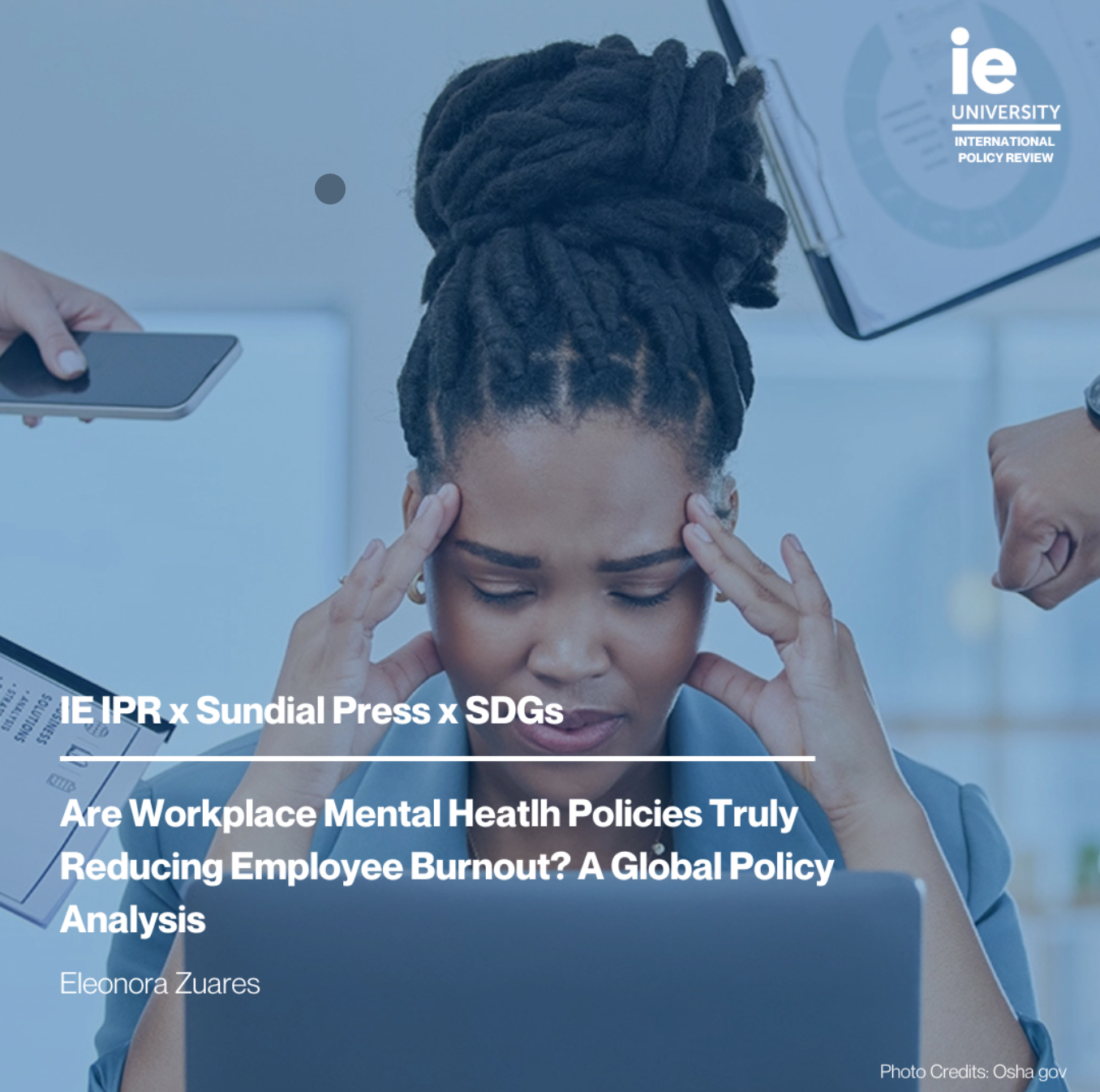
30 Jun Are Workplace Mental Health Policies Truly Reducing Employee Burnout? A Global Policy Analysis
Eleonora Zuares
School of Politics, Economics and Global Affairs, IE University, Madrid, Spain.
Bachelor’s in International Relations.
E-mail: ezuares.ieu2021@student.ie.edu.
Abstract
Workplace burnout has surged across industries over the past decade, becoming a critical global issue. In response, governments and corporations have implemented various policies to address the crisis, ranging from legislative mandates to voluntary workplace guidelines. This article examines the policy approaches of France, Portugal, Canada, and Japan, analyzing their effectiveness in reducing burnout and improving employee well-being. Each country has tackled workplace mental health through different mechanisms: France’s Right to Disconnect grants employees the legal right to disengage from work communications outside working hours, while Portugal reinforces this right by imposing stricter penalties on employers who violate it. Japan’s Anti-Karoshi laws seek to combat death from overwork through overtime caps and mandatory health screenings, whereas Canada’s National Standard for Psychological Health and Safety promotes a voluntary, preventative framework designed to reduce psychological risks and foster mentally healthy workplaces. By evaluating these diverse approaches, this article identifies which policies are most effective based on enforcement mechanisms, industry adaptation, and cultural factors. The findings suggest that a one-size-fits-all model is insufficient, and instead propose a two-tiered approach establishing minimum universal protections alongside flexible, industry-specific adaptations. This strategy offers sustainable, long-term improvements in workplace well-being by ensuring that policies are both enforceable and flexible enough to adapt to evolving labor trends.
READ THE FULL ARTICLE HERE
Keywords: Sustainable Development Goal 3, W orkplace Burnout, Employee W ell-being, Mental Health Policies, Labor Rights, Work-life Balance, Occupational Stress.

Sorry, the comment form is closed at this time.